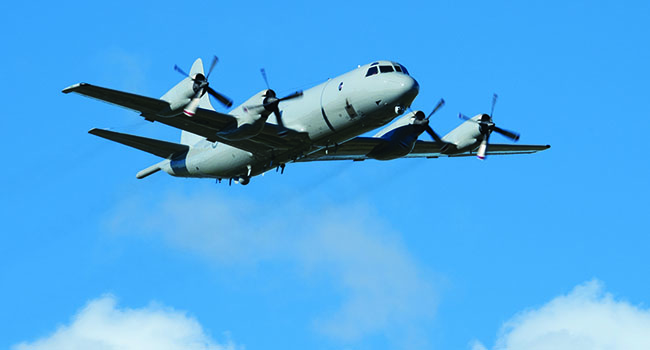
The New Zealand Defence Force (NZDF) has taken part in a multi-national fisheries patrol that covered an area 22 times the size of New Zealand.
The operation, from 19-31 May involved seven members of the Forum Fisheries Agency (FFA) – Cook Island, Fiji, Niue, Samoa, Tokelau, Tonga and Tuvalu – and the countries that comprise the Quadrilateral Defence Coordination Group – New Zealand, Australia, France and the United States.
It involved six aircraft and five ships, with 16 police, fisheries and military personnel from seven countries coordinating the operation from the Regional Fisheries Surveillance Centre in Solomon Islands.
The FFA, which led the operation, said 126 vessels were identified for further investigation, including 89 vessels that were located by a Royal New Zealand Air Force P-3K2 Orion aircraft.
Only minor infringements were found when 57 vessels were boarded during the operation, which covered the exclusive economic zones of the participating Pacific Island countries and the adjacent high seas.
Acting Commander Joint Forces New Zealand Air Commodore Tim Walshe said the patrol demonstrated the value of collective effort in tackling illegal, unregulated or unreported fishing in the Southwest Pacific.
“By working together with our Pacific neighbours and partners, we were able to pool resources, deploy more personnel, aircraft and ships to the operation, and cover an area totalling six million square kilometres,” Air Commodore Walshe said.
“Surveillance by aircraft deployed for the operation also supported the patrolling ships in enforcing fisheries regulations through the boarding and inspection of vessels.”
FFA’s Director of Fisheries Operations Allan Rahari said there has been a notable decline in serious infringements over the past couple of years, which could be due in part to the deterrent effect of regular region-wide patrols.
During the recent operation, one vessel that was licensed to catch tuna and tuna-like species was found to have blue marlin in its freezer, while another failed to sign off the log after a day’s fishing.
An observer on one vessel that was boarded reported that it had transferred its catch to another vessel – a practice known as “bunkering”. The vessel was referred for further investigation.
The operation trained police, fisheries and military personnel from participating Pacific Island countries in the use of vessel monitoring systems used at the Regional Fisheries Surveillance Centre, Mr Rahari said.
“They learnt first-hand how the Operations Room functions during a multi-national, multi-asset operation. They also learnt how to best utilise aircraft in support of surveillance operations,” he said.
“The aim is for these officers to apply what they learnt in their own headquarters during their own surveillance operations.”
Weather was a significant challenge during the recent patrol, he said.
The FFA is an inter-governmental agency established in 1979 to enable regional cooperation and coordination on fisheries policies.



